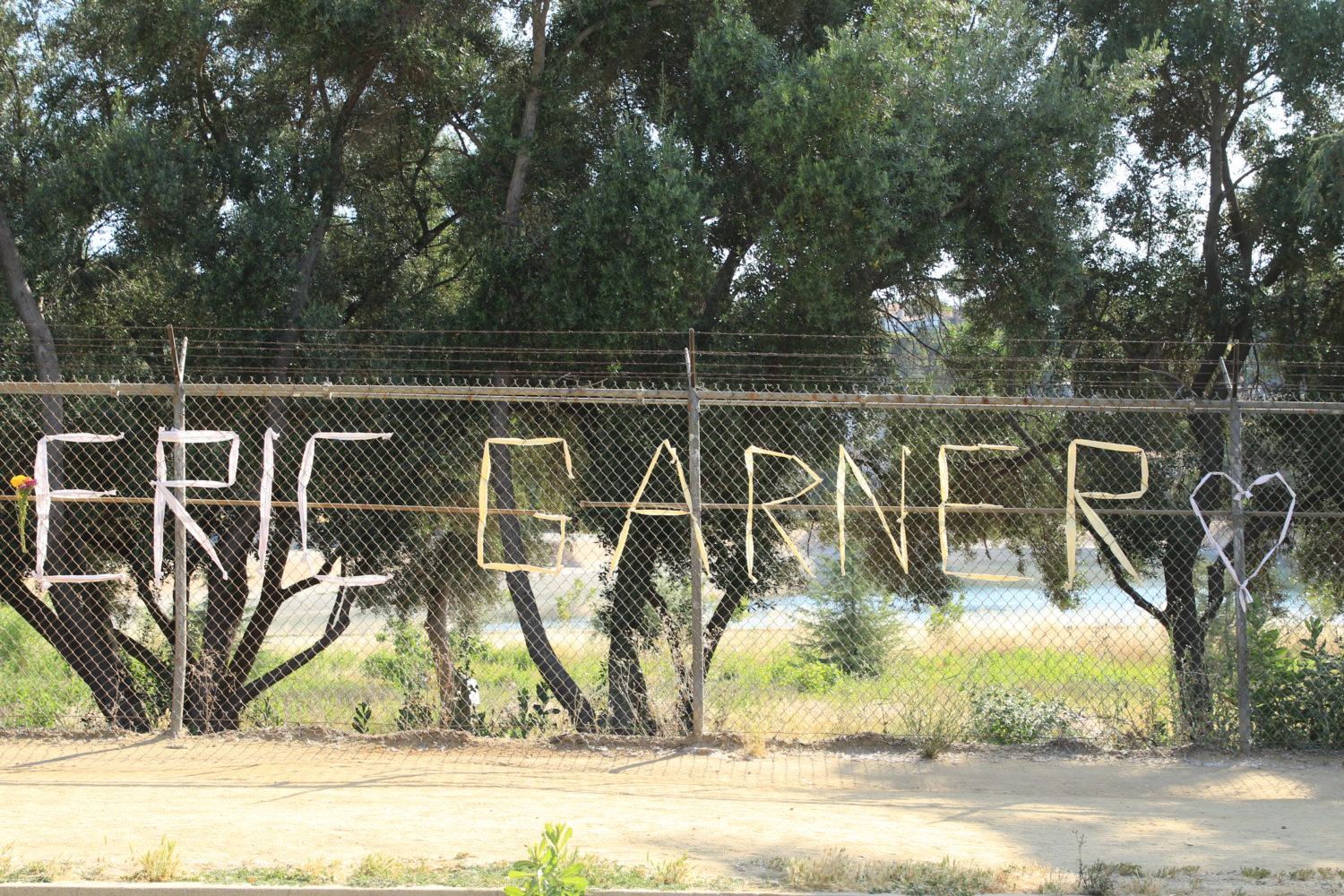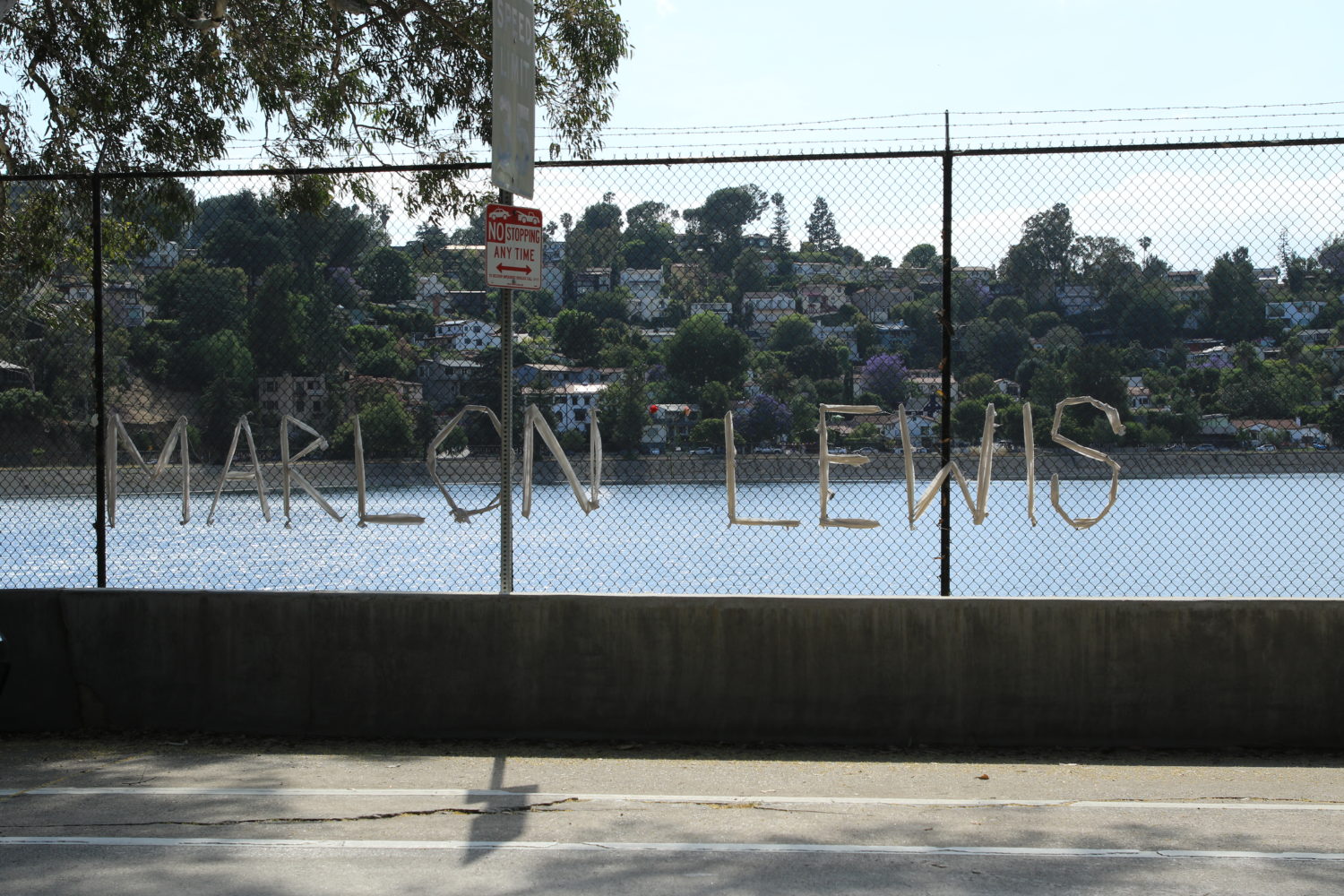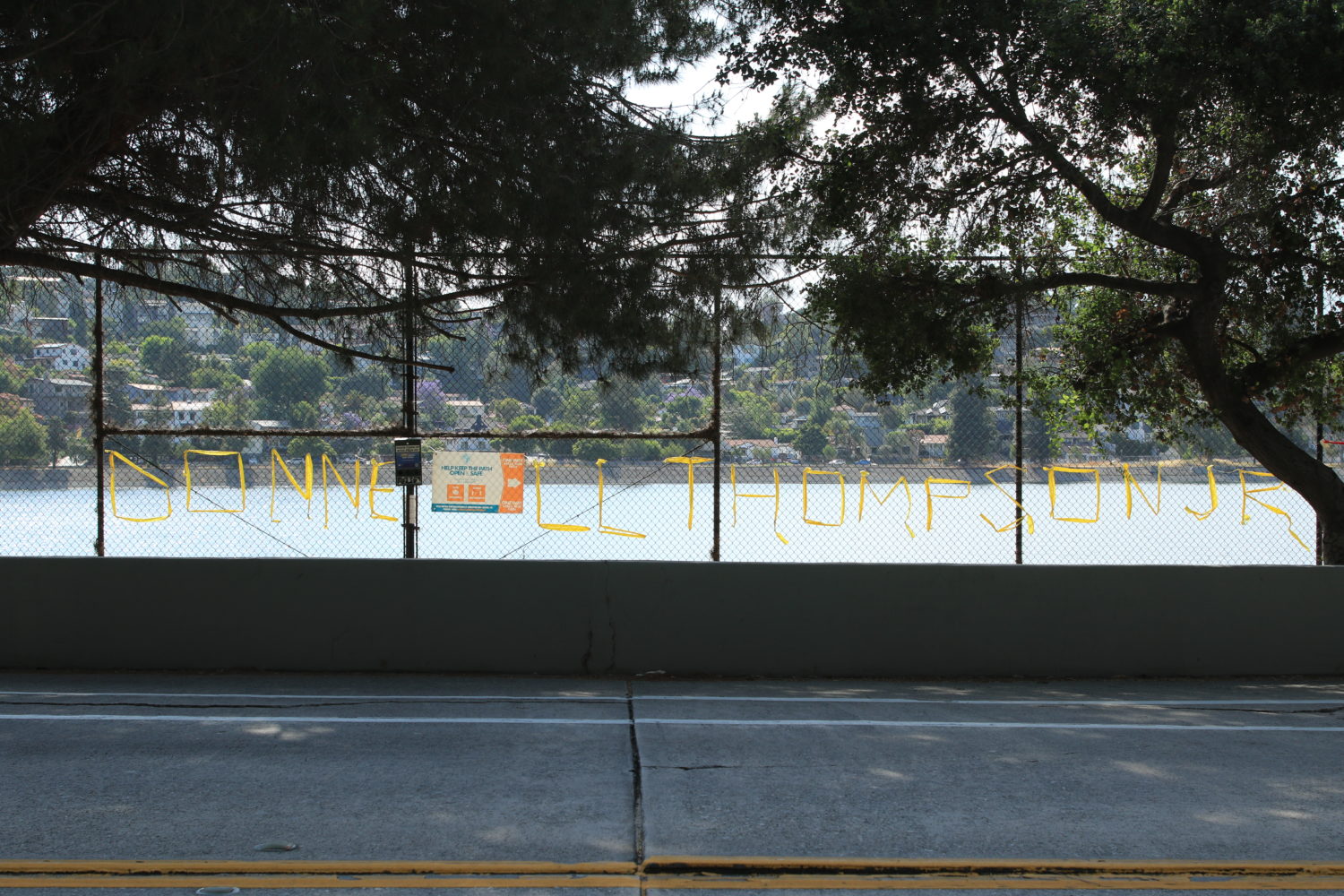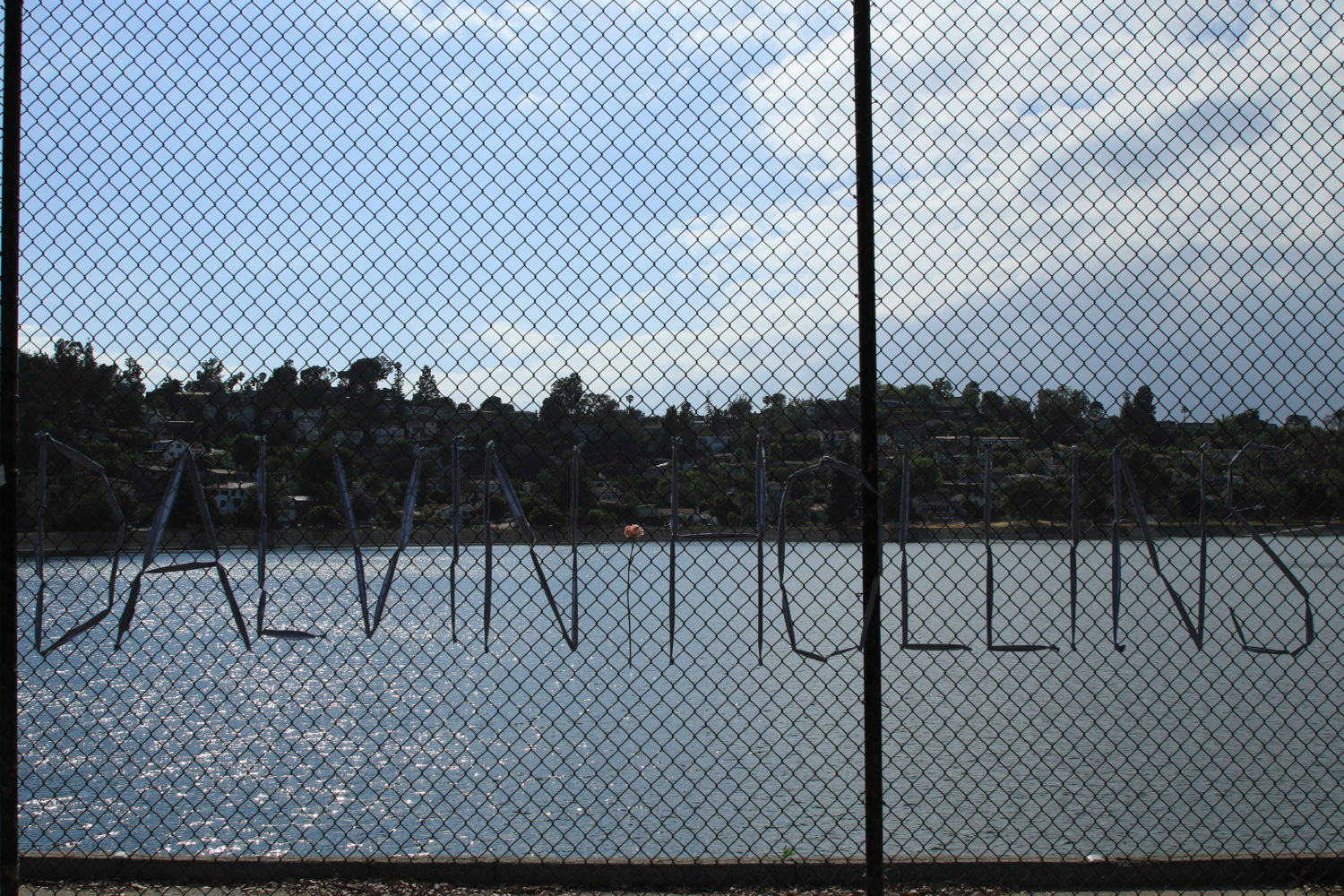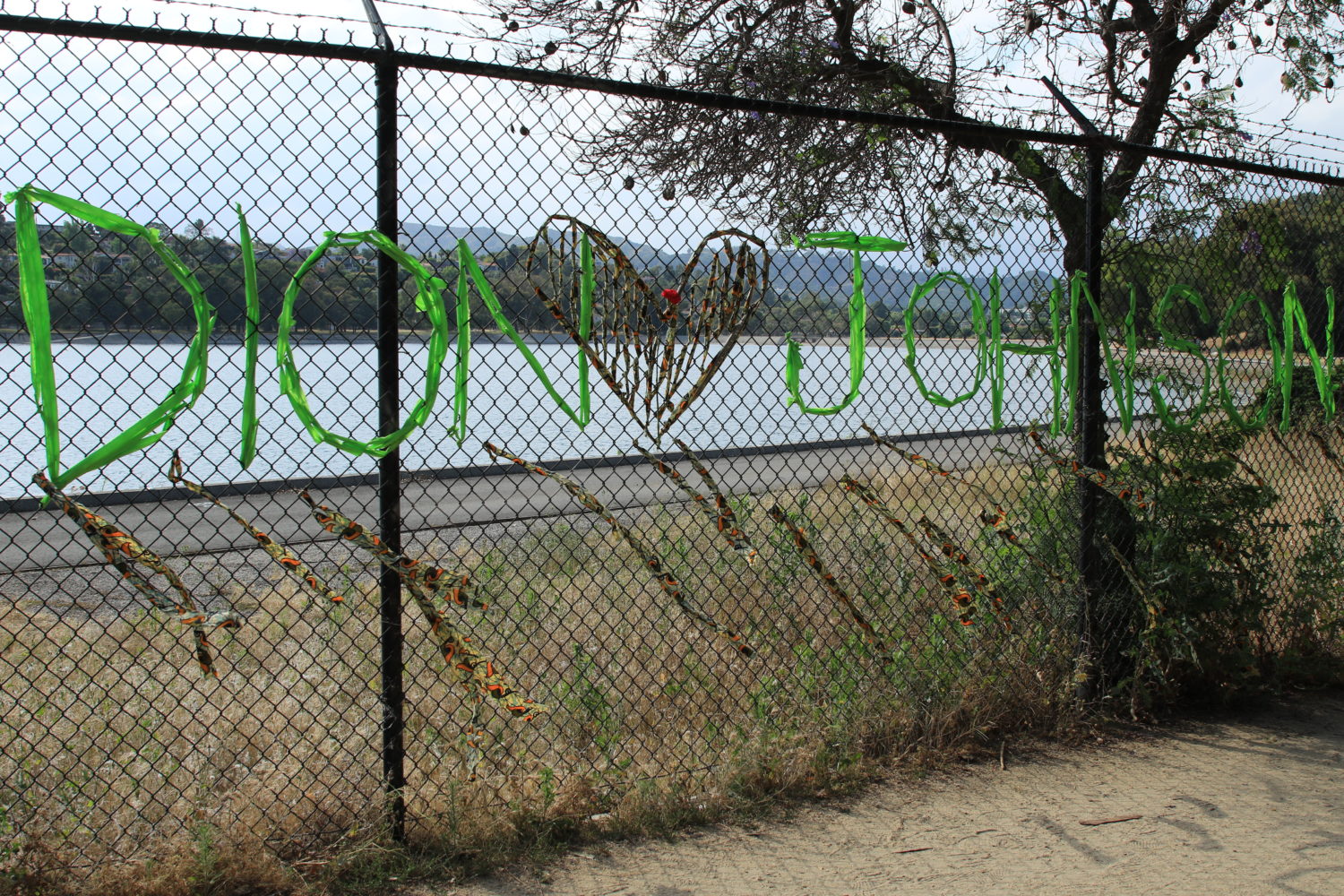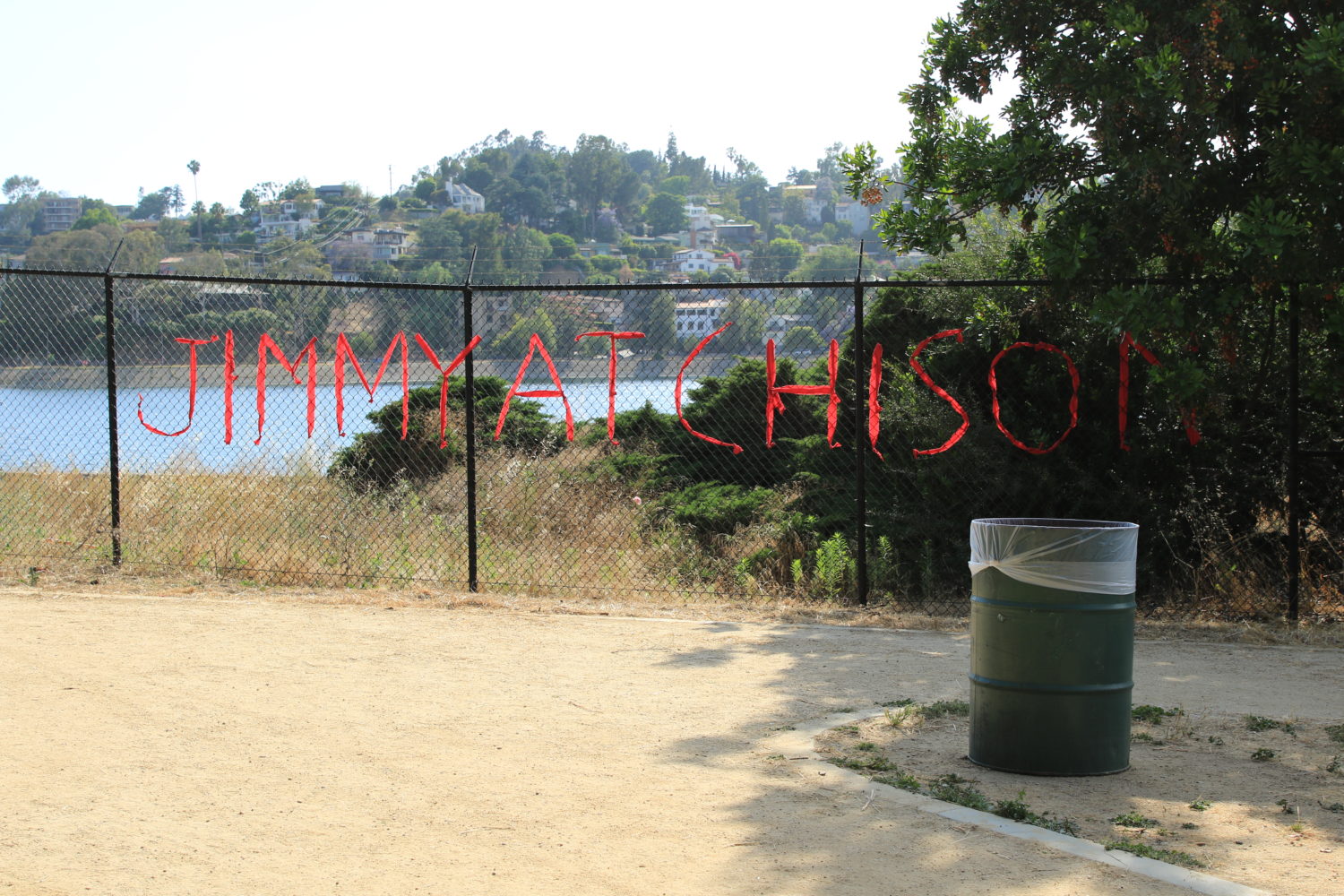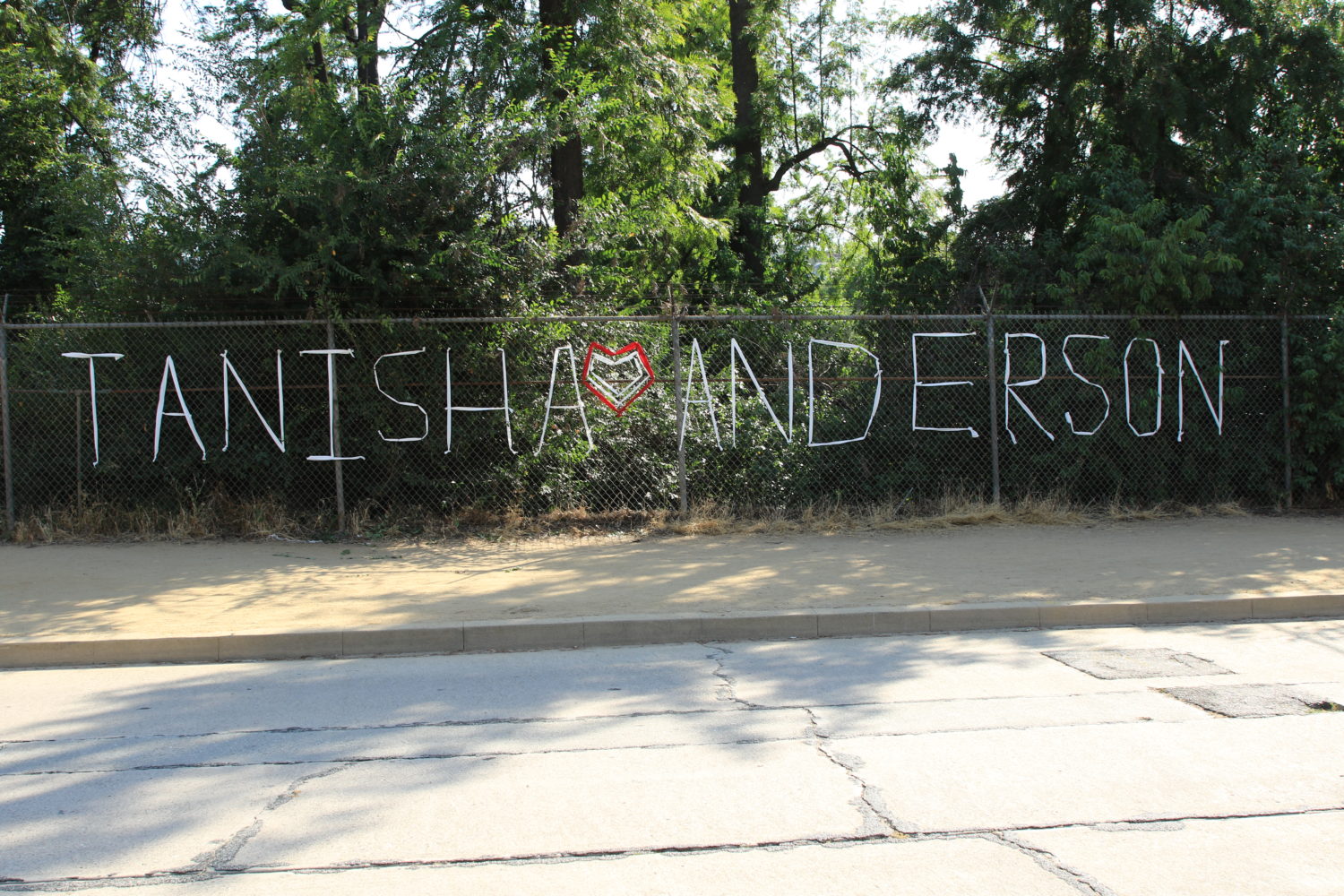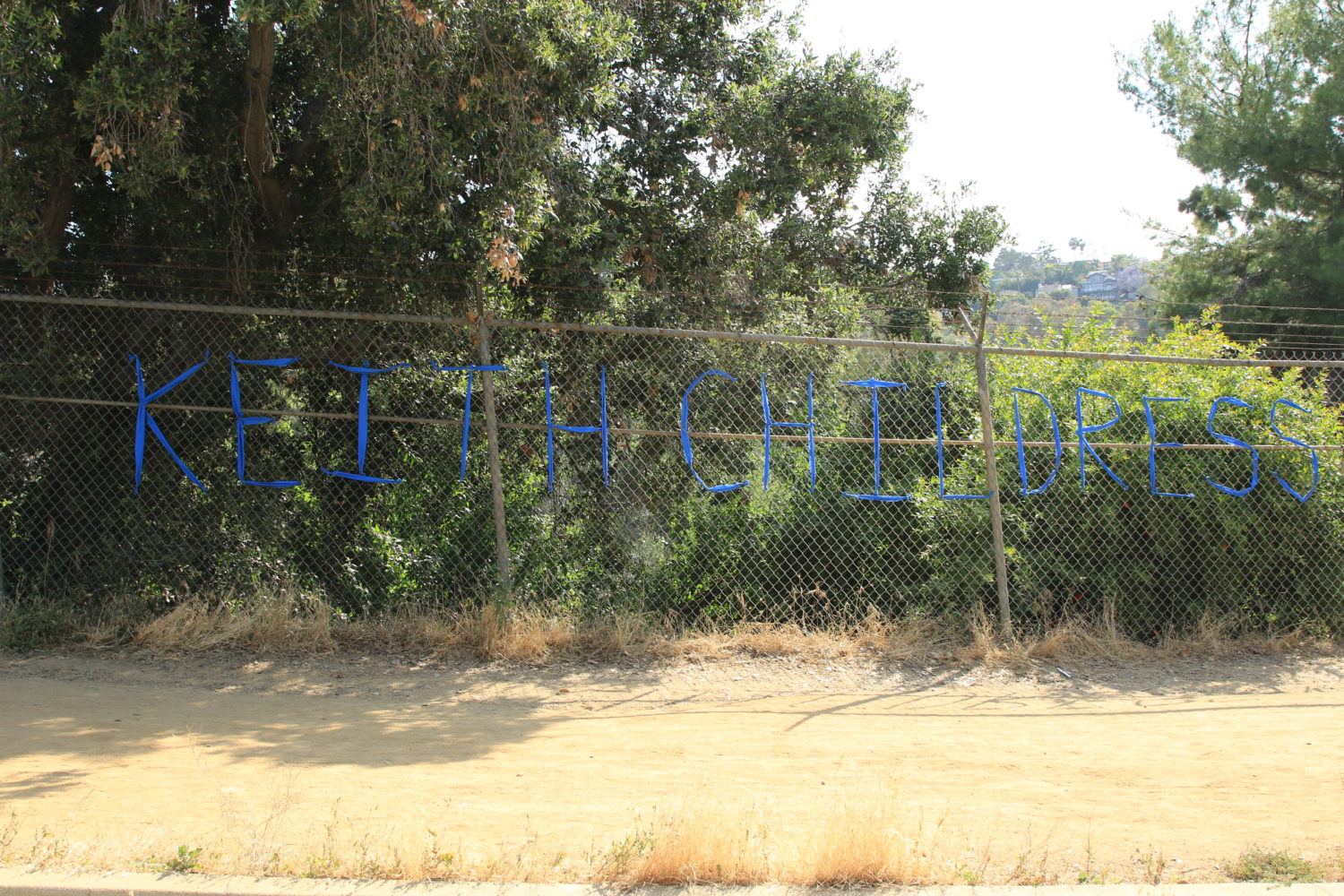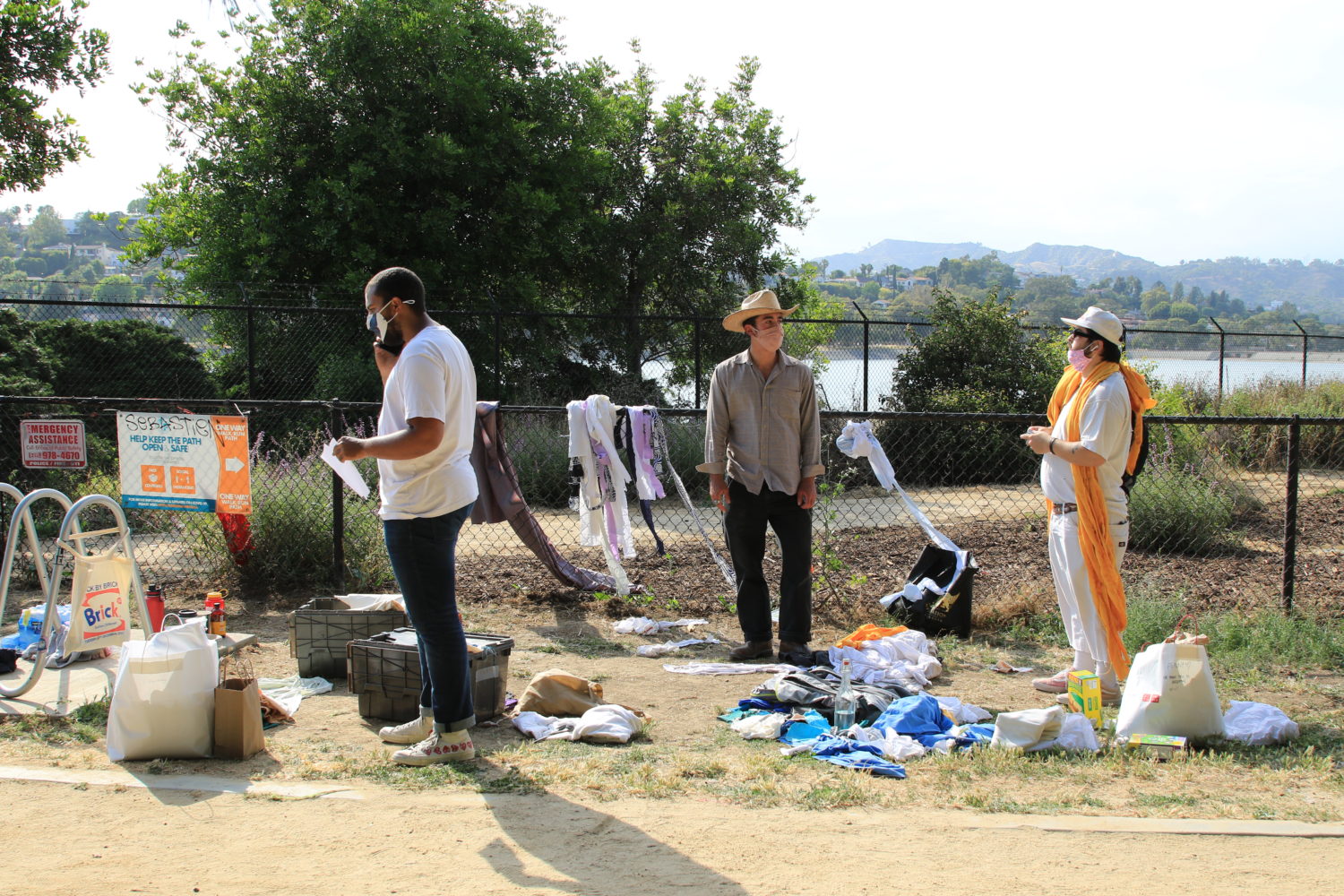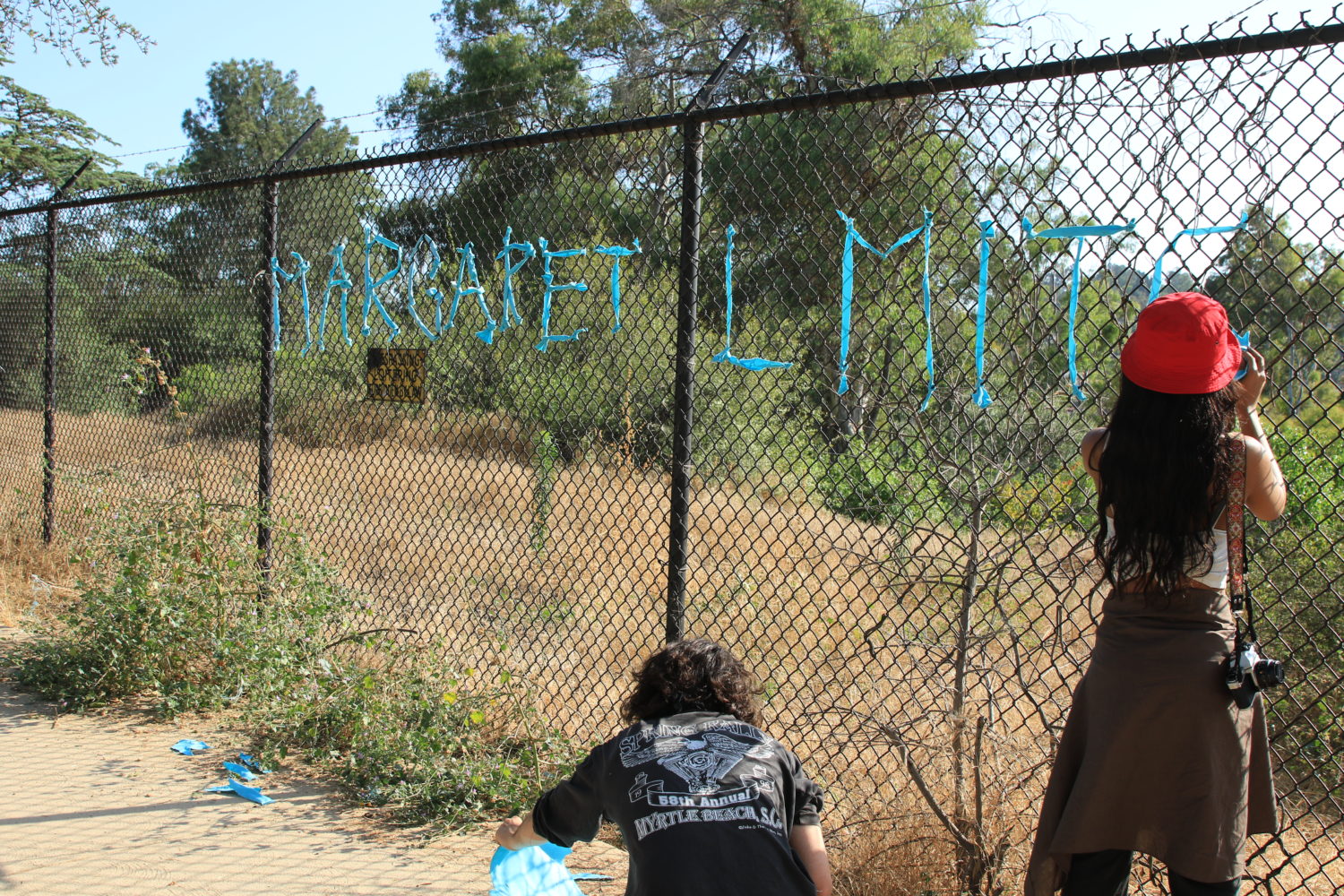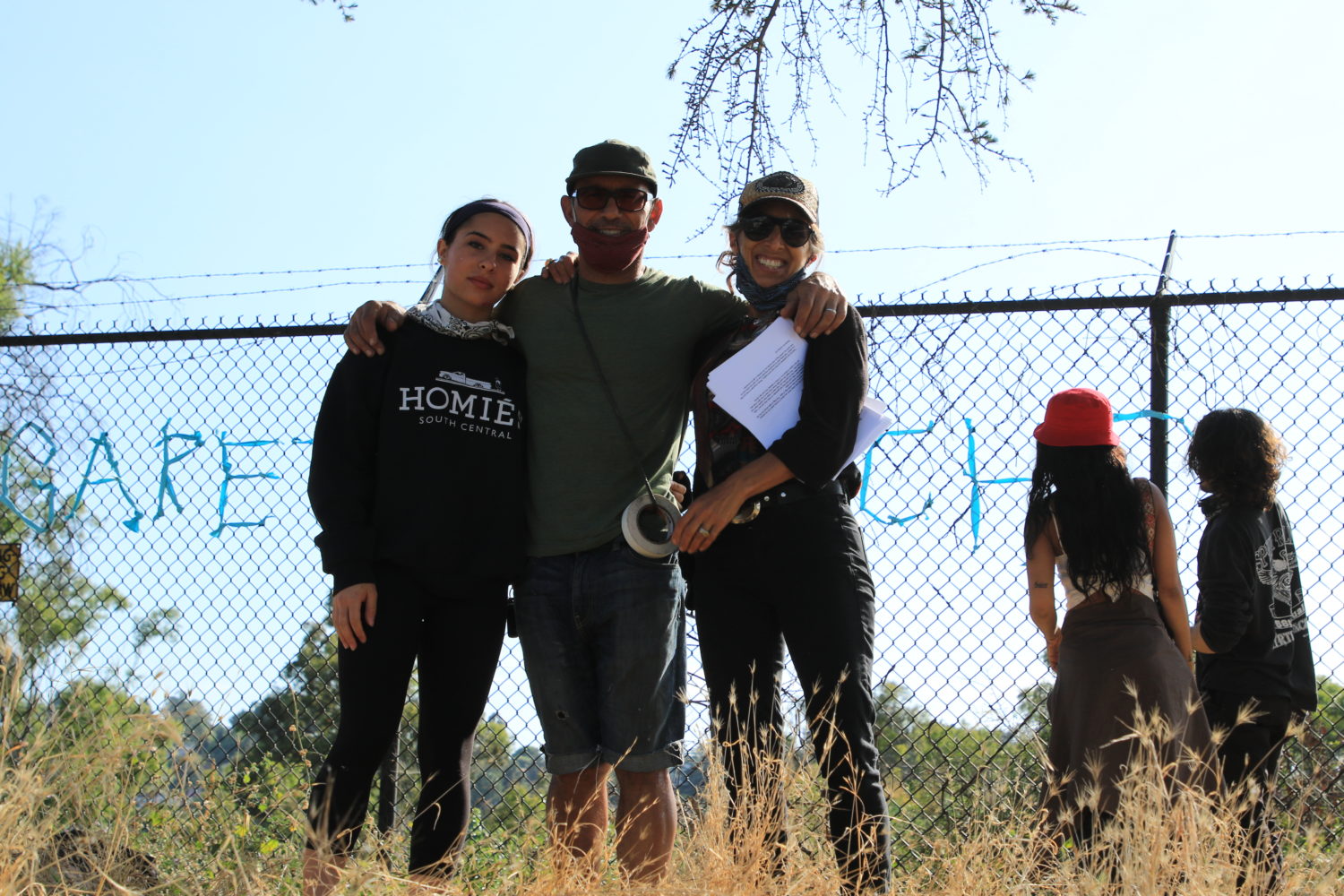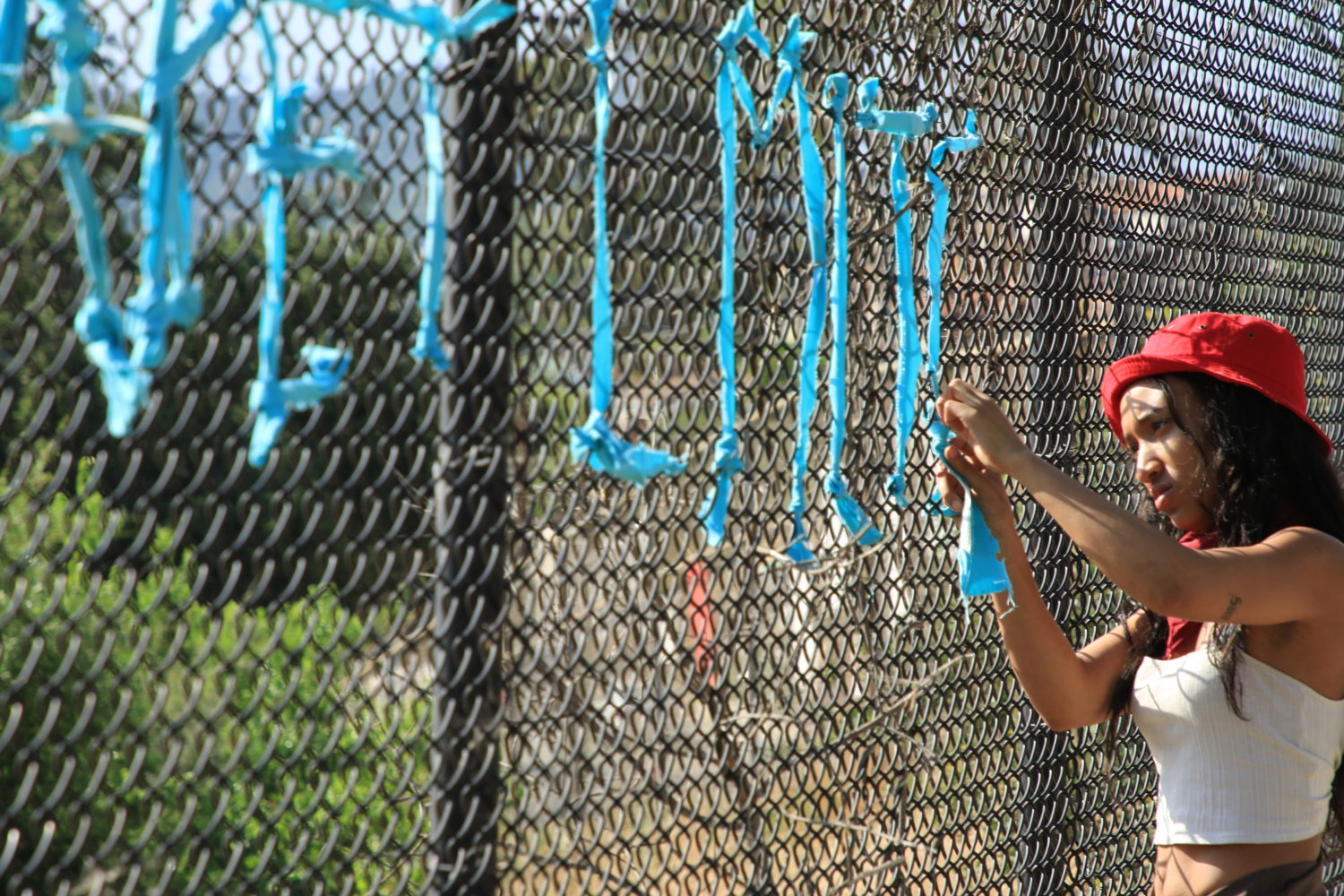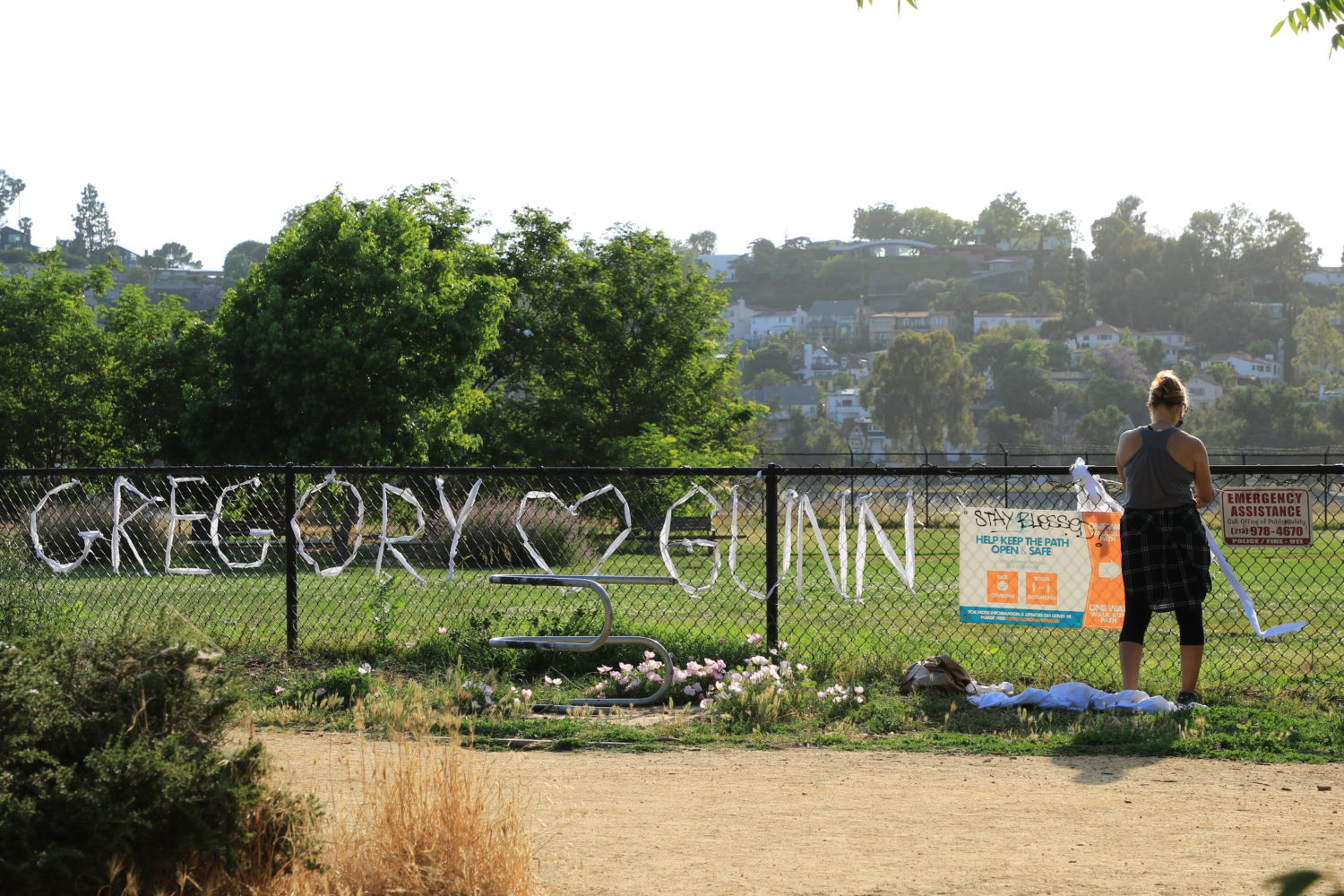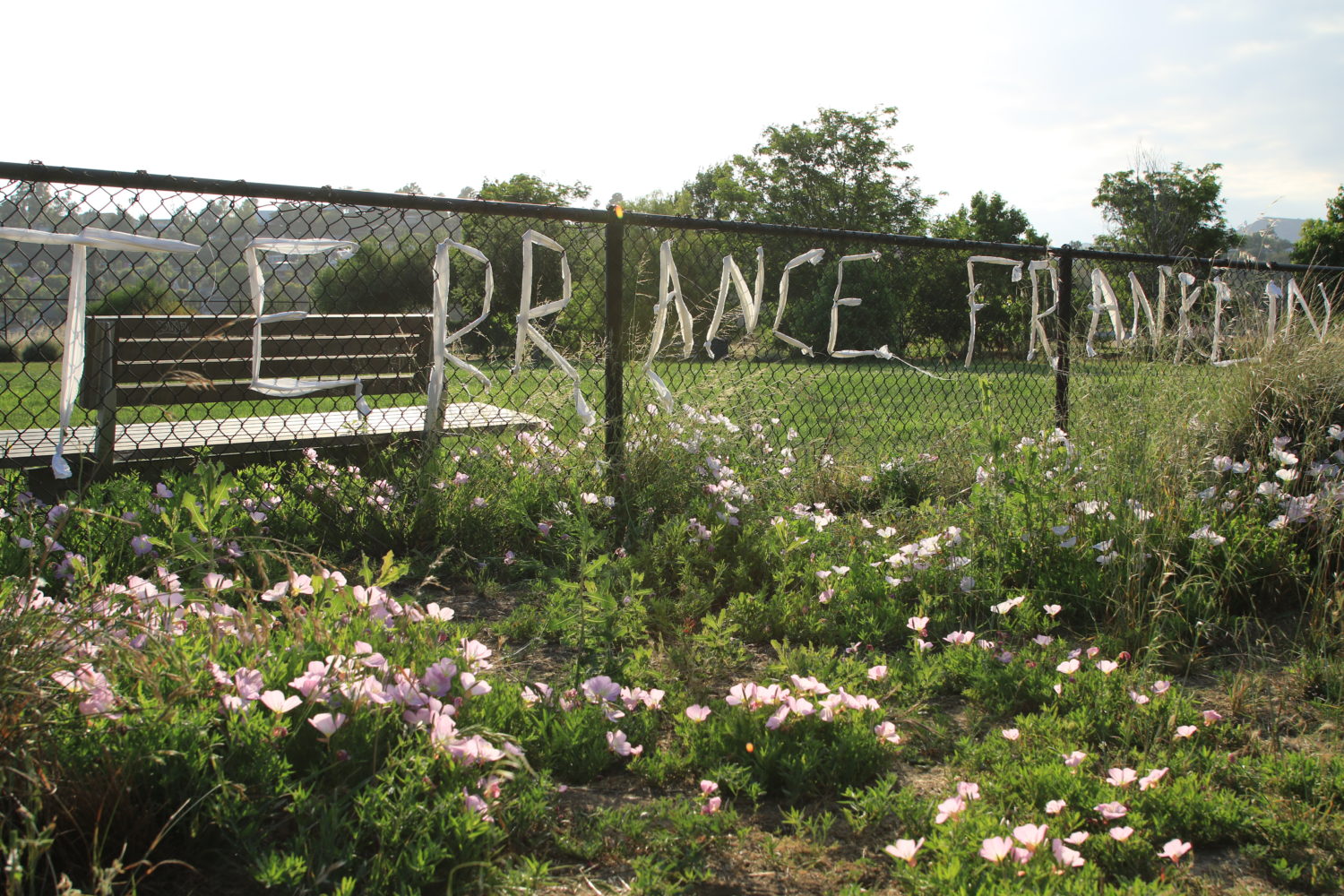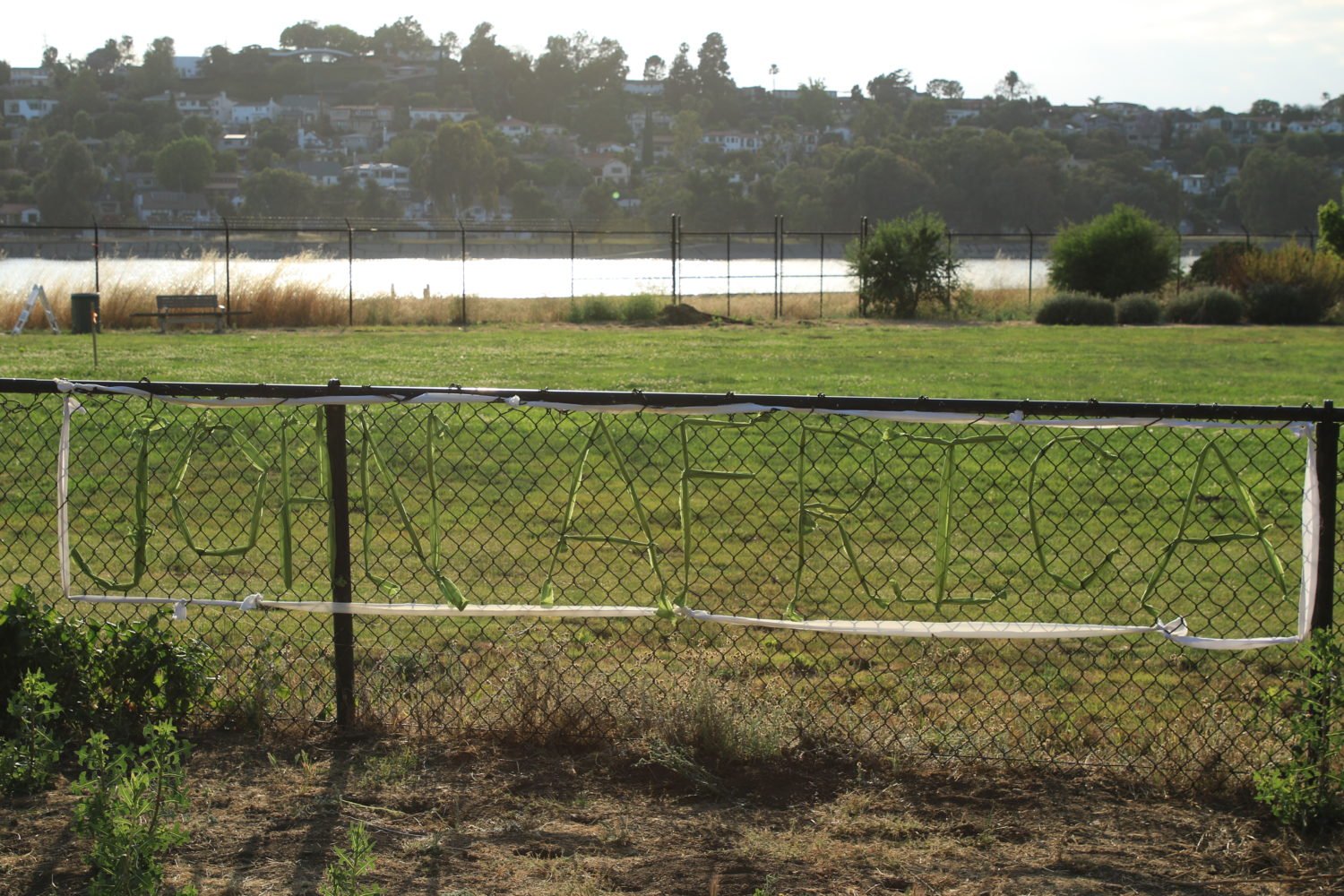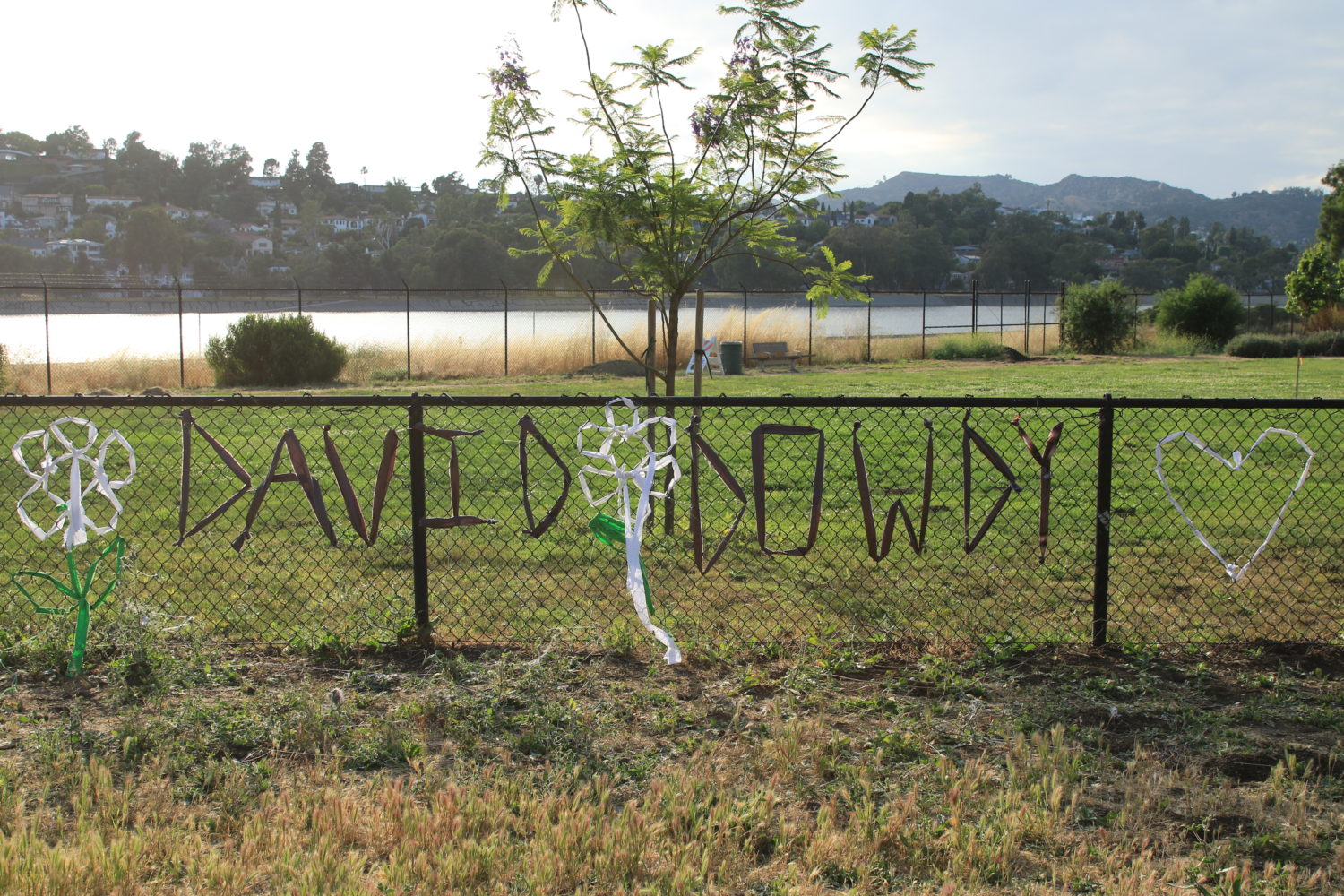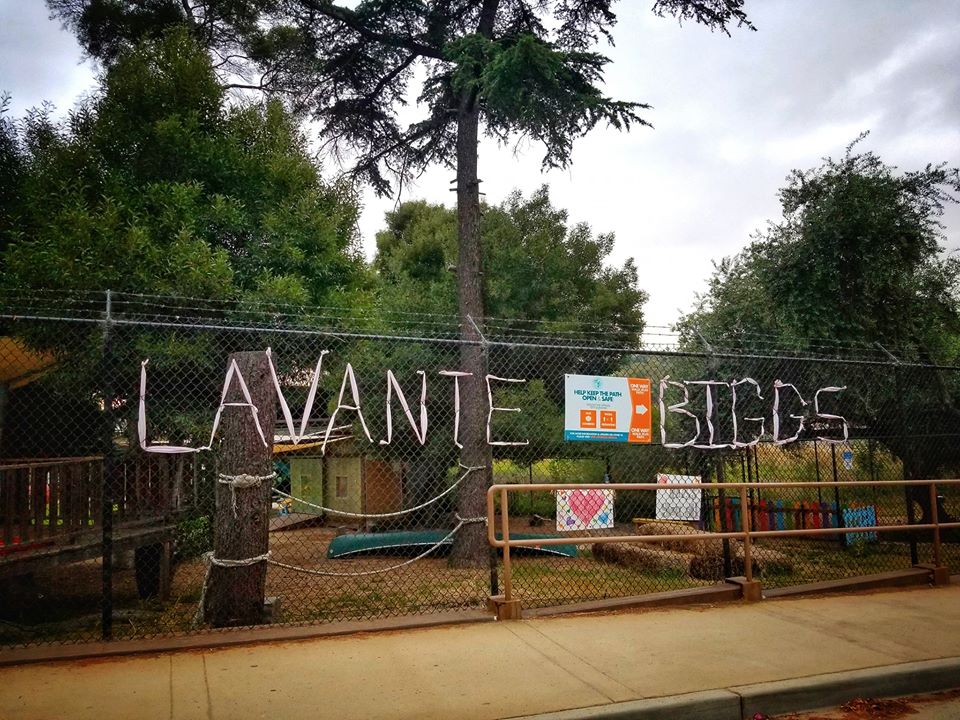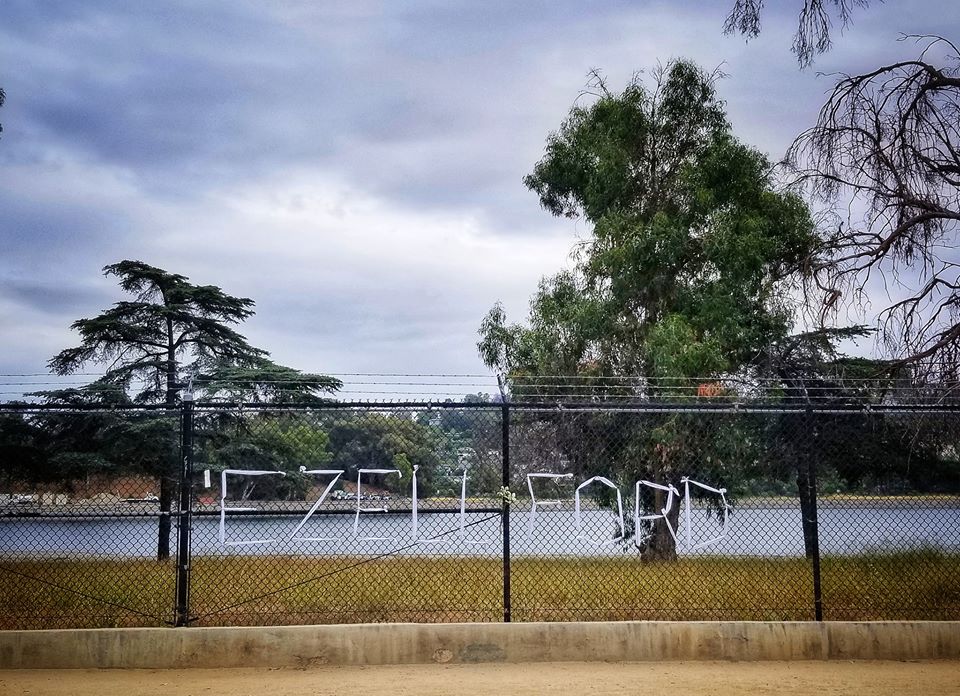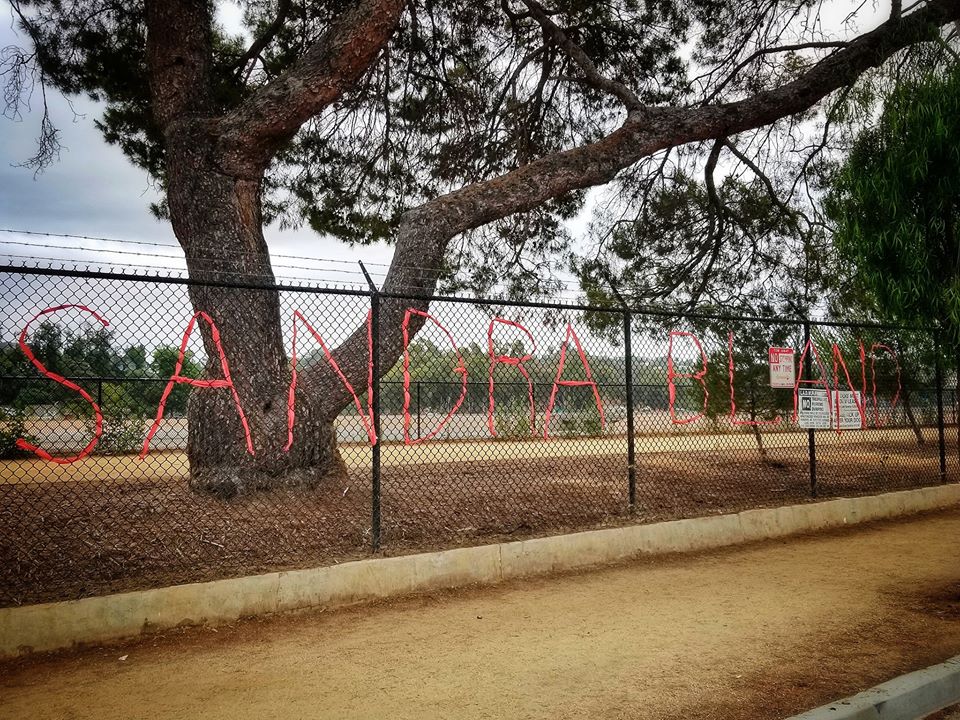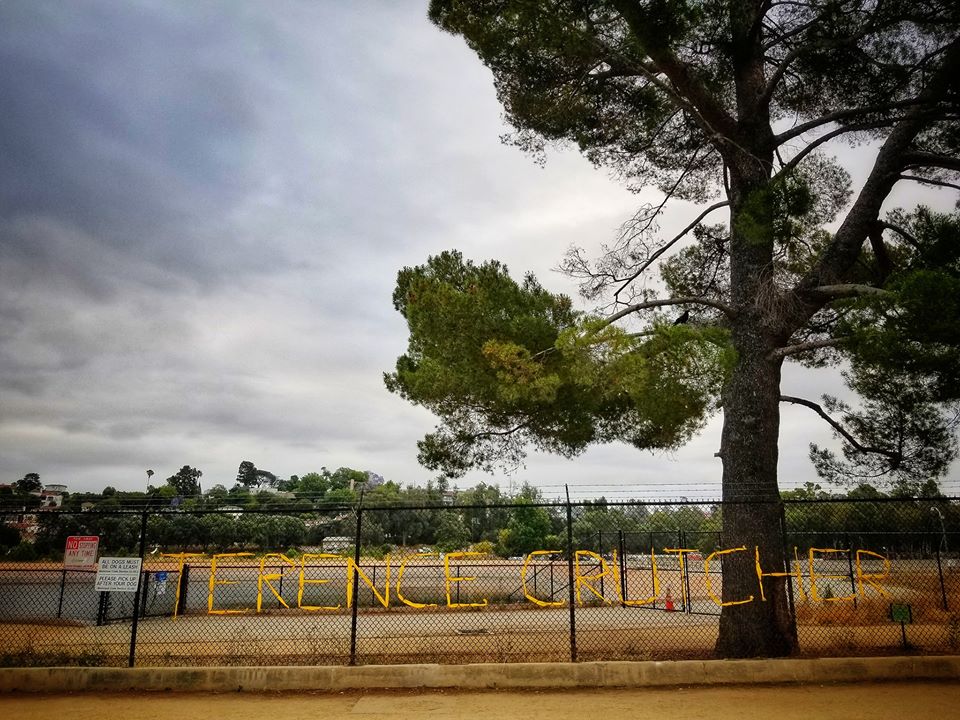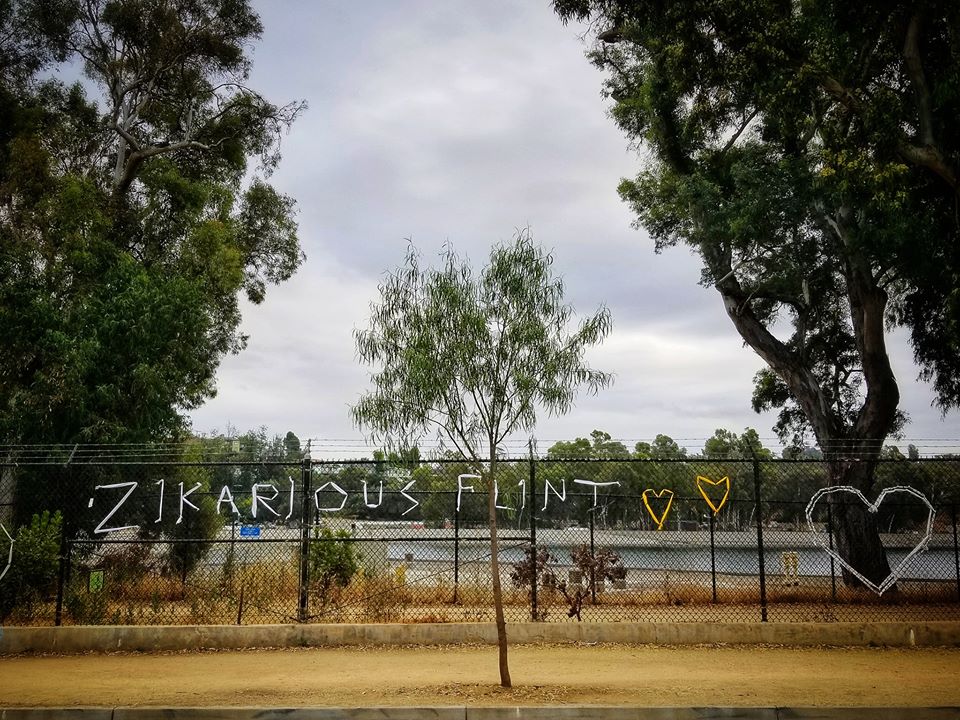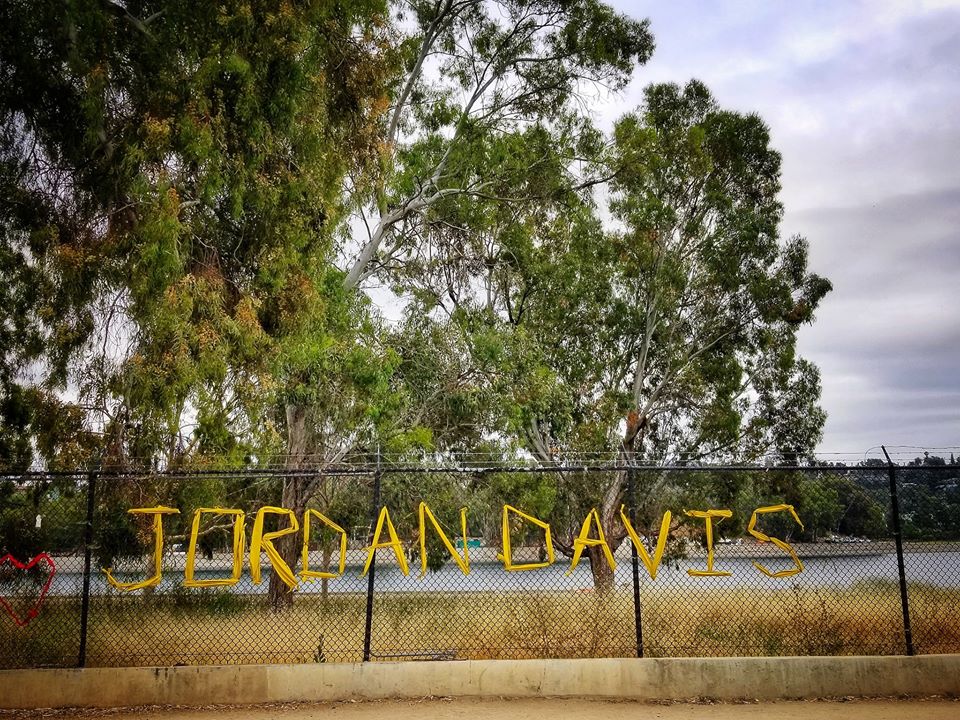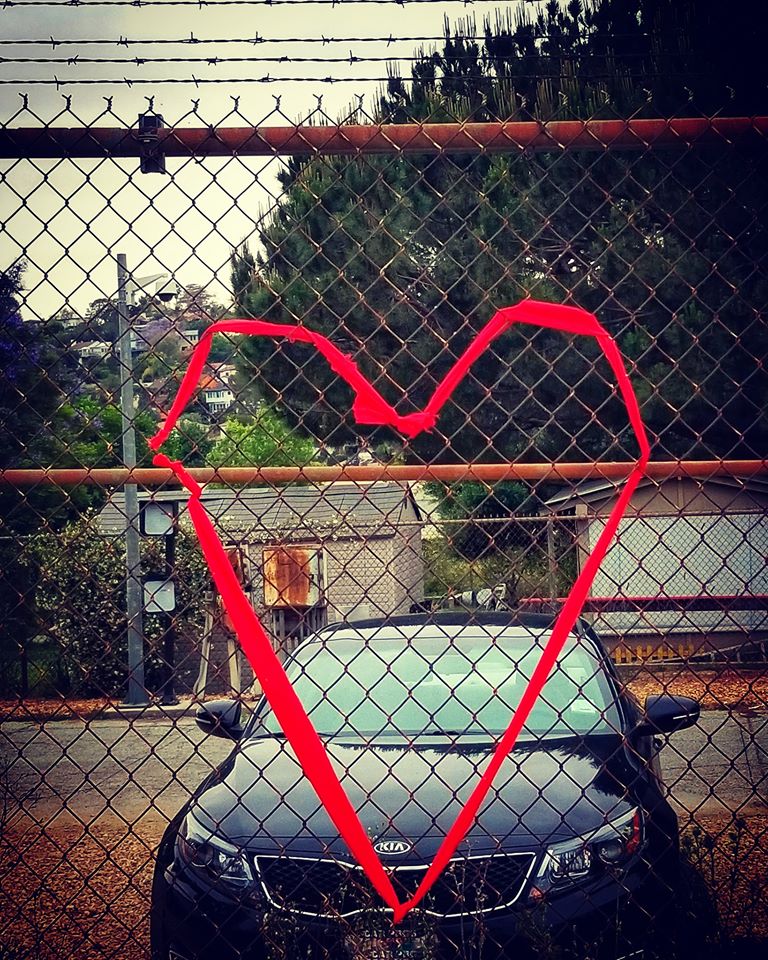Last Monday, as the nation exploded in reaction to George Floyd’s murder and the initial failure to charge the offending officers, Eli Caplan, 24, heard the call of the Black Lives Matter movement. He wanted to put Mr. Floyd’s name up on the barbed wire fence that runs along the 2.2 mile Silver Lake Reservoir down the street from his childhood home.
His brother Simon, 20, procured dark blue fabric to spell out the letters of Floyd’s name. His mother shared their idea with some neighbors, and together, they wove “George Floyd” into the fence. On Wednesday, the family decided to put up more names — Breonna Taylor, Trayvon Martin, Tamar Rice, Michael Brown, Sean Reed, Eric Garner, Bettie Jones, Ahmaud Arbury.
Catalyzed by a deep desire to pay tribute to lives lost, as well as the groundswell of courageous actions being met with even more senseless brutality across the country, the Caplan brothers and their friend Micah Woods, 27, suddenly had a bigger vision. Woods posted on his socials and the Caplans reached out to even more friends, and soon people were asking if they could Venmo money for fabric. By Friday, the group, now much bigger, added more names — Tony McDade, Antwon Rose, Sharmel Edwards, Yvette Smith, Laquan McDonald, Michael Noel, De’Von Bailey, Antoine D. Hunter, Tommy Yancy — and by the end of the day, the names spanned nearly all the way around the lake.
The Caplan Family, Woods and all of their friends invite people to walk the reservoir with their friends and family, reading and saying the names of these individuals out loud and learning more about their stories.
All photos here by Maria Demopoulos and Gina Acuna.
Advertising disclosure: We may receive compensation for some of the links in our stories. Thank you for supporting LA Weekly and our advertisers.


